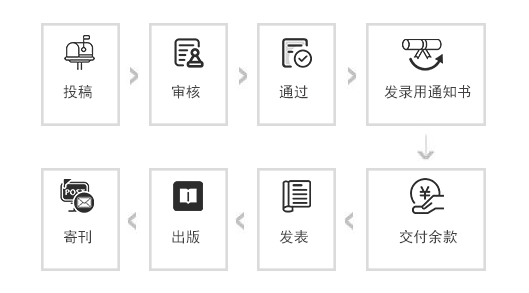JOURNAL OF THE LEARNING SCIENCES



- 中国知网数据库(CNKI)全文收录期刊
- 中国核心期刊(遴选)数据库收录期刊
- 中国万方数据库全文收录期刊
- 中国维普科技期刊数据库收录期刊
- 中国龙源数据库全文收录期刊
- 中国期刊网全文收录期刊



中国高校科技期刊研究会第9次会员代表大会在北京召开,中宣部出版局副局长张怀海、教育部科学技术与信息化司一级巡视员张国辉等领导出席会议并发表..
英文简介: Journal of the Learning Sciences (JLS) is one of the two official journals of the International Society of the Learning Sciences ( www.isls.org). JLS provides a multidisciplinary forum for research on education and learning that informs theories of how people learn and the design of learning environments. It publishes research that elucidates processes of learning, and the ways in which technologies, instructional practices, and learning environments can be designed to support learning in different contexts. JLS articles draw on theoretical frameworks from such diverse fields as cognitive science, sociocultural theory, educational psychology, computer science, and anthropology. Submissions are not limited to any particular research method, but must be based on rigorous analyses that present new insights into how people learn and/or how learning can be supported and enhanced. Successful submissions should position their argument within extant literature in the learning sciences. They should reflect the core practices and foci that have defined the learning sciences as a field: privileging design in methodology and pedagogy; emphasizing interdisciplinarity and methodological innovation; grounding research in real-world contexts; answering questions about learning process and mechanism, alongside outcomes; pursuing technological and pedagogical innovation; and maintaining a strong connection between research and practice. JLS invites studies of learning in a broad range of contexts, including formal learning environments as well as learning in informal contexts. Relevant settings can include schools, higher education, community settings, museums, workplaces, play spaces, and family life, as well as online and virtual worlds. Domains of learning can include subject areas, such as literacy, history, science or mathematics, as well as other domains, such as teaching expertise, medical diagnosis, or craft knowledge. Research that problematizes disciplinary boundaries is also welcome. Work that foregrounds the design of innovative technologies for learning is a priority for JLS. In all cases, however, the fundamental focus is on understanding the processes, tools, and contexts, as well as outcomes, of learning in its myriad forms. JLS articles draw on theoretical frameworks from such diverse fields as cognitive science, sociocultural theory, educational psychology, computer science, and anthropology. Submissions are not limited to any particular research method, methodology, or theoretical framework, but must be based on rigorous analyses that present new insights into how people learn and/or how learning can be supported and enhanced. Manuscripts should carefully describe the methods used, and justify their fit to the research questions that are posed in the manuscript.中文简介:(来自Google、百度翻译)《学习科学杂志》(JLS)是国际学习科学学会的两份官方期刊之一(www.isls.org)。JLS为教育和学习的研究提供了一个多学科的论坛,为人们如何学习和学习环境的设计提供理论依据。它发表的研究阐明了学习的过程,以及如何设计技术、教学实践和学习环境来支持在不同环境下的学习。 JLS的文章借鉴了认知科学、社会文化理论、教育心理学、计算机科学和人类学等不同领域的理论框架。提交的研究报告并不局限于任何特定的研究方法,而是必须基于严谨的分析,对人们如何学习以及/或如何支持和加强学习提出新的见解。 成功的论文应该把他们的论点放在现存的学习科学文献中。它们应该反映将学习科学定义为一个领域的核心实践和焦点:方法论和教育学中的特权设计;强调跨学科和方法创新;现实世界背景下的基础研究;回答有关学习过程和机制以及结果的问题;追求技术和教学创新;保持研究和实践之间的紧密联系。 JLS邀请广泛的学习研究,包括正式的学习环境和非正式的学习环境。相关设置可以包括学校、高等教育、社区设置、博物馆、工作场所、游戏空间和家庭生活,以及在线和虚拟世界。学习的领域可以包括学科领域,如识字、历史、科学或数学,以及其他领域,如教学专长、医学诊断或工艺知识。将学科边界问题化的研究也受到欢迎。为学习设计创新技术的工作是JLS的优先事项。然而,在所有情况下,最基本的重点都是理解各种形式的学习的过程、工具、上下文以及结果。 JLS的文章借鉴了认知科学、社会文化理论、教育心理学、计算机科学和人类学等不同领域的理论框架。提交的论文不限于任何特定的研究方法、方法论或理论框架,而是必须基于对人们如何学习和/或如何支持和增强学习的新见解的严格分析。手稿应仔细描述使用的方法,并证明其适合在手稿中提出的研究问题。










英文简介: Journal of the Learning Sciences (JLS) is one of the two official journals of the International Society of the Learning Sciences ( www.isls.org). JLS provides a multidisciplinary forum for research on education and learning that informs theories of how people learn and the design of learning environments. It publishes research that elucidates processes of learning, and the ways in which technologies, instructional practices, and learning environments can be designed to support learning in different contexts. JLS articles draw on theoretical frameworks from such diverse fields as cognitive science, sociocultural theory, educational psychology, computer science, and anthropology. Submissions are not limited to any particular research method, but must be based on rigorous analyses that present new insights into how people learn and/or how learning can be supported and enhanced. Successful submissions should position their argument within extant literature in the learning sciences. They should reflect the core practices and foci that have defined the learning sciences as a field: privileging design in methodology and pedagogy; emphasizing interdisciplinarity and methodological innovation; grounding research in real-world contexts; answering questions about learning process and mechanism, alongside outcomes; pursuing technological and pedagogical innovation; and maintaining a strong connection between research and practice. JLS invites studies of learning in a broad range of contexts, including formal learning environments as well as learning in informal contexts. Relevant settings can include schools, higher education, community settings, museums, workplaces, play spaces, and family life, as well as online and virtual worlds. Domains of learning can include subject areas, such as literacy, history, science or mathematics, as well as other domains, such as teaching expertise, medical diagnosis, or craft knowledge. Research that problematizes disciplinary boundaries is also welcome. Work that foregrounds the design of innovative technologies for learning is a priority for JLS. In all cases, however, the fundamental focus is on understanding the processes, tools, and contexts, as well as outcomes, of learning in its myriad forms. JLS articles draw on theoretical frameworks from such diverse fields as cognitive science, sociocultural theory, educational psychology, computer science, and anthropology. Submissions are not limited to any particular research method, methodology, or theoretical framework, but must be based on rigorous analyses that present new insights into how people learn and/or how learning can be supported and enhanced. Manuscripts should carefully describe the methods used, and justify their fit to the research questions that are posed in the manuscript.中文简介:(来自Google、百度翻译)《学习科学杂志》(JLS)是国际学习科学学会的两份官方期刊之一(www.isls.org)。JLS为教育和学习的研究提供了一个多学科的论坛,为人们如何学习和学习环境的设计提供理论依据。它发表的研究阐明了学习的过程,以及如何设计技术、教学实践和学习环境来支持在不同环境下的学习。 JLS的文章借鉴了认知科学、社会文化理论、教育心理学、计算机科学和人类学等不同领域的理论框架。提交的研究报告并不局限于任何特定的研究方法,而是必须基于严谨的分析,对人们如何学习以及/或如何支持和加强学习提出新的见解。 成功的论文应该把他们的论点放在现存的学习科学文献中。它们应该反映将学习科学定义为一个领域的核心实践和焦点:方法论和教育学中的特权设计;强调跨学科和方法创新;现实世界背景下的基础研究;回答有关学习过程和机制以及结果的问题;追求技术和教学创新;保持研究和实践之间的紧密联系。 JLS邀请广泛的学习研究,包括正式的学习环境和非正式的学习环境。相关设置可以包括学校、高等教育、社区设置、博物馆、工作场所、游戏空间和家庭生活,以及在线和虚拟世界。学习的领域可以包括学科领域,如识字、历史、科学或数学,以及其他领域,如教学专长、医学诊断或工艺知识。将学科边界问题化的研究也受到欢迎。为学习设计创新技术的工作是JLS的优先事项。然而,在所有情况下,最基本的重点都是理解各种形式的学习的过程、工具、上下文以及结果。 JLS的文章借鉴了认知科学、社会文化理论、教育心理学、计算机科学和人类学等不同领域的理论框架。提交的论文不限于任何特定的研究方法、方法论或理论框架,而是必须基于对人们如何学习和/或如何支持和增强学习的新见解的严格分析。手稿应仔细描述使用的方法,并证明其适合在手稿中提出的研究问题。
来稿要求:
论点新颖、论证严密、论据充足、文字精练。论文字数:5000字符-8000字符为宜,图表也要计算在内,不包括英文摘要关键词。
标 题:
文章标题要言简意赅,30字以内。作者署名:署真实姓名,注明作者单位、单位所在省市和邮政编码。摘 要:要用第三人称概括全文,300字以内。
关 键 词:
用3~8个关键词术语反映论文主题。专用符号:名词、术语、数字、计量单位、标点符号和数学符号等,必须符合国家标准;外文人名、地名和术语需译成中文。
图表格式:
文中插图与表格放在相应正文之后,分别按出现顺序用图1、图2或表1、表2统一编号。插图应为黑白色,其序号、标题及注释居中放在图的下方,表格的序号及标题置于表格上方,表注放在表格的下方(建议:由于篇幅限制,除核心期刊外尽量不用或少用图表)。
正文注释:
采用尾注形式,注释号①,②,③等标在相应正文右上角。
章节体例:
章节标题为:一级标题不编号,用黑体居中排,二级标题不编号,用楷体放在相应的文字段首与正文空一字格接排正文。 三级标题分别用1.2.3.顺序编号。文中接排标题用(1),(2)编号。
参考文献:
参考文献置于正文之后,近5年的不少于3条,用[1],[2]……顺序编号,如文章中有内容需要解释请用尾注形式。参考文献不全者不能进入审稿阶段。{参考文献格式如下:(1)图书:作者.书名(版本)[M].出版所在地: 出版社,出版年:(1)页码.
(2)期刊:作者.题目[J].期刊名,年,卷(期):页码.
(3)电子参考文献:作者.题目[OL].(文章的发表日期).[本文引用日期].作者简介:来稿者请附个人简介,内容包括姓名(出生年—),性别,籍贯,民族,学历,工作单位,职称,研究方向,通讯地址,联系电话及电子信箱。
一般情况下,您将在3个工作日内收到审稿结果。如文章有很强的时效性,请说明需要最晚刊发时间。
| 论文编号 | 作者姓名 | 论文题目 | 录用情况 |
|---|---|---|---|
| TG251-13579 | 韩丽炘 孟涛 温娟娟 刘晓琴 | 基于互联网的CBL+TBL教学法在病理学实验教学中的应用 | 已录用 |
| TG251-13681 | 邹隆强 杨清余 钟鸿路 李正南 陈 | 医学运动康复联合消肿止痛方治疗急性踝关节扭伤临床研究 | 已录用 |
| TG251-13794 | 林雨慧 陈霄雯 郑颖彦 朱永凯 贾 | 基于SWOT模型的儿童专科医院临床研究发展策略分析 | 已录用 |
| TG251-13762 | 郑鸿雁 | 重复经颅磁刺激治疗肝脾不调型功能性肛门直肠痛的临床研究 | 已录用 |
| TG251-13891 | 袁召1 赵会谢2 赵海深3 | 真武汤治疗阳虚水泛型慢性心力衰竭患者的临床研究 | 已录用 |
| TG251-13536 | 王杰1 张蕾蕾2 | 血脂和载脂蛋白水平与分化型甲状腺癌及其病理学特征的相关性探究 | 已录用 |
| GD24-5203 | 单一青 高鹏慧 姚瑶 | 思维导图护理对宫颈癌患者行腹腔镜术后康复的影响 | 已录用 |
| GD24-5217 | 林秀娟 梁静文 刘美仙 陈惠贤 | 加速康复外科管理模式在胸腔镜肺段切除术患者围手术期护理中的应用效果 | 已录用 |
| GD24-5213 | 杨素雯 何洁芳 陈妙霞 廖景升 | 健康行为改变整合理论对于宫颈癌晚期放疗患者依从性及自我效能的影响 | 已录用 |
| GD24-5199 | 杨月惠 王凤婷 | 个体护理计划在心脏瓣膜置换手术围手术期患者中的应用 | 已录用 |
邮箱:cnkibianjibu@163.com
QQ:
扫码联系: